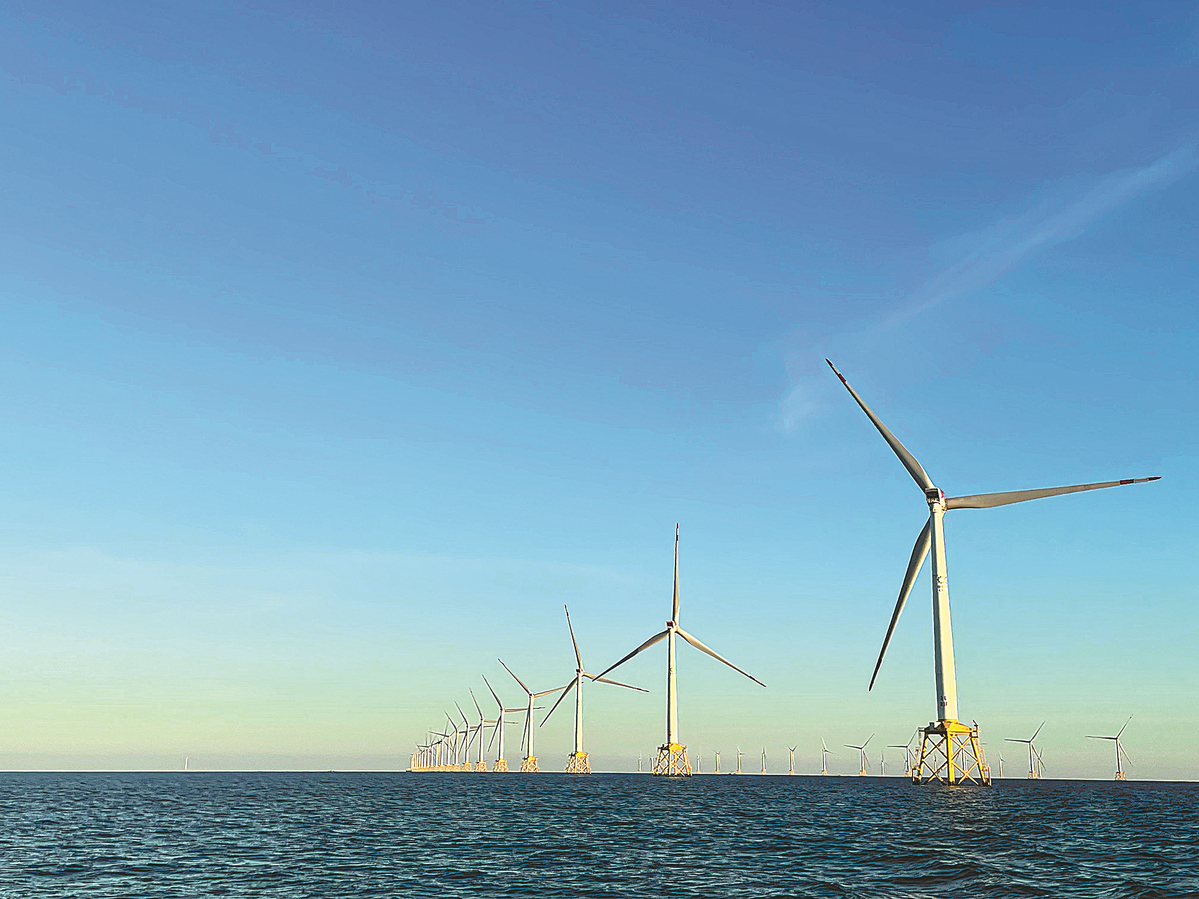Guangdong to step up development of non-fossil fuel sources


Guangdong, a major energy consuming province in South China, will further increase efforts to develop non-petrochemical energy sources, promoting the construction of large-scale offshore wind power plants to achieve its energy conservation and carbon reduction targets in 2025.
The province will also actively develop nuclear power in a safe and orderly manner, accelerating the construction of nuclear power projects, including Huizhou Taipingling Nuclear Power Plant, Units 5 and 6 of Lufeng Nuclear Power and the first phase of Lianjiang Nuclear Power, while speeding up offshore wind power projects, such as Qingzhou in Yangjiang and Lemen in Shantou, next year.
Meanwhile, Guangdong will promote the high-quality development of its photovoltaic industry, accelerating the construction of distributed photovoltaic projects in various industrial parks, public institutions and facilities, transportation infrastructure, urban buildings and rural areas.
According to the Action Plan for Energy Conservation and Carbon Reduction in Guangdong Province from 2024 to 2025, the proportion of non-petrochemical energy consumption is expected to reach about 32 percent in the province, a global manufacturing base, in 2025.
Guangdong's key areas and industries will undergo energy-saving and carbon reduction renovations to achieve an energy saving of approximately 3.5 million metric tons of standard coal and a reduction of around 9.1 million tons of carbon dioxide emissions to achieve the obligatory target for energy conservation and carbon reduction during the 14th-Five-Year-Plan period (2021-25), according to the plan published earlier this week.
In terms of reducing and replacing petrochemical energy consumption, the province will continue to strictly and reasonably control coal consumption, strengthen clean and efficient utilization of coal, promoting low carbonization of coal-fired power plants, it said.
By the end of 2025, Guangdong is expected to reasonably control coal consumption while ensuring energy and electricity supply in the Pearl River Delta region, the action plan said.
Meanwhile, Guangdong will further optimize the structure of oil and gas consumption and accelerate the substitution of oil products in the transportation sector while introducing natural gas consumption in an orderly manner to promote the efficient utilization of natural gas in transportation, commerce and livelihood industries, it said.
Zhang Shanqing, a professor at the School of Chemical Engineering and Light Industry and School of Advanced Manufacturing of the Guangdong University of Technology, said the action plan is committed to increasing the proportion of non-petrochemical energy consumption, gradually reducing and getting rid of excessive dependence on traditional petrochemical energy, thus reducing carbon emissions from the root to help build a more environmentally friendly and efficient energy supply system.
"It not only lays a solid foundation for the steady progress of Guangdong's green economy, but also, with the stability and sustainability of clean energy, guarantees the stable operation of various industries, injects continuous power into the vigorous development of the green economy and helps Guangdong take the lead in achieving green transformation in the energy field in the country and achieve sustainable development," said Zhang.
The action plan also helps Guangdong promote industrial upgrading and transformation, he said, adding that the energy-saving and carbon reduction transformation plan for key areas and industries will become a key driving force for enterprises' transformation and upgrading.
"To meet the strict requirements of energy conservation and emission reduction, enterprises will inevitably increase investment in advanced energy conservation and emission reduction technologies and efficient equipment, triggering a deep transformation of industrial technology," he said.
This will not only help improve production efficiency, optimize resource allocation, and achieve efficient utilization of production factors, but also help create and build a group of green industry clusters with strong competitiveness, covering cutting-edge fields such as new energy, energy conservation and environmental protection, and high-end equipment manufacturing, Zhang added.
Contact the writers at [email protected]




































